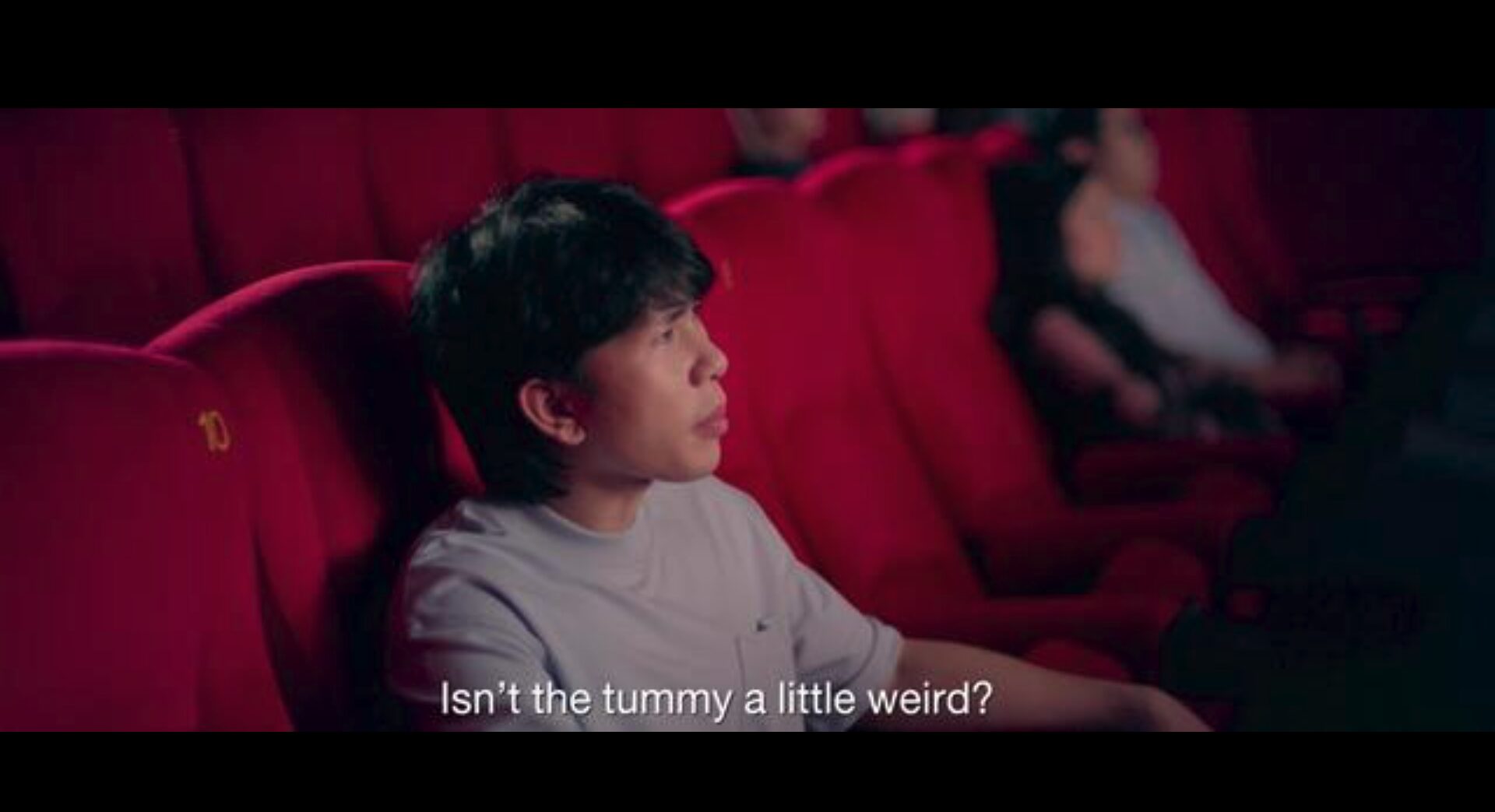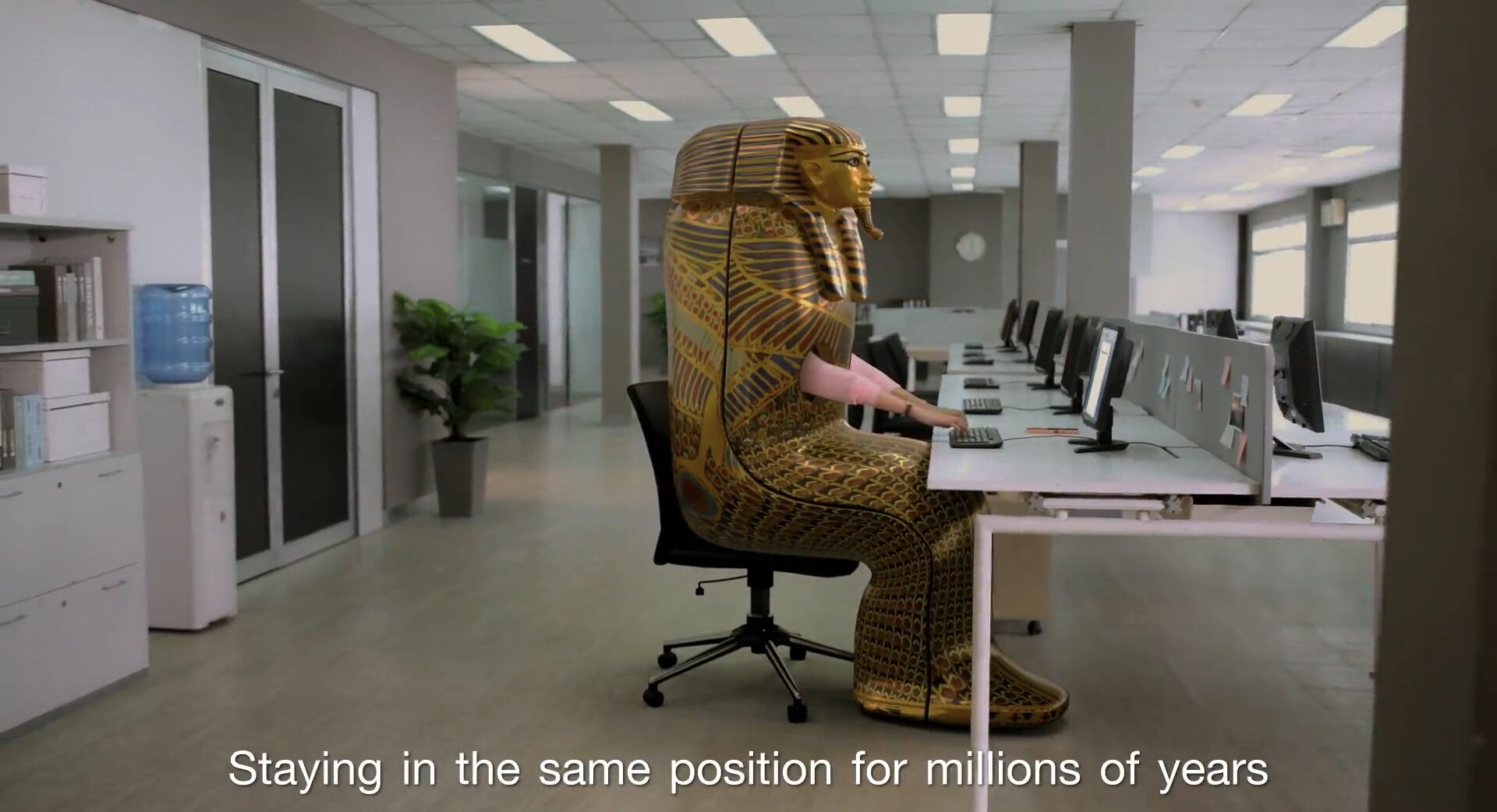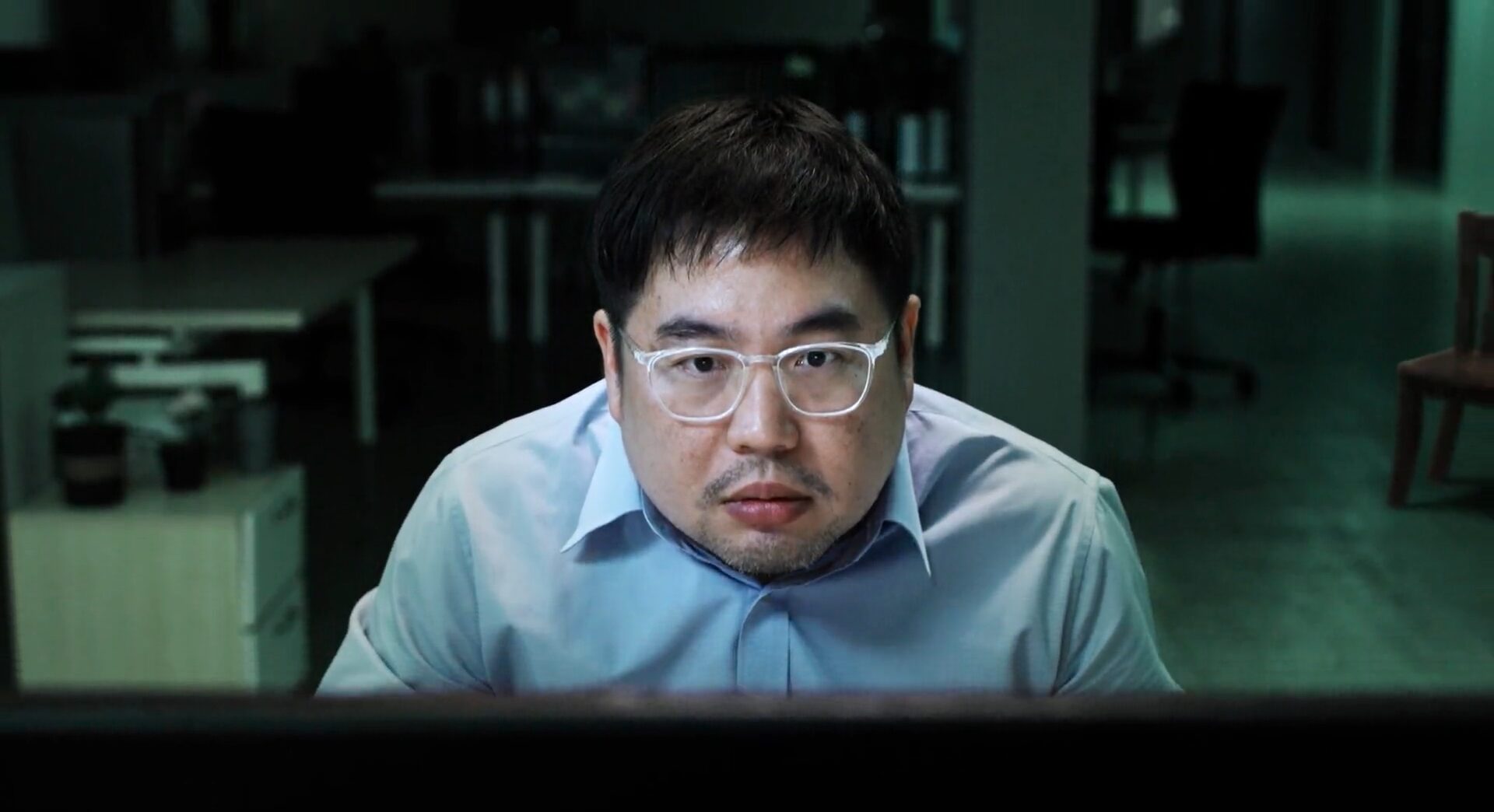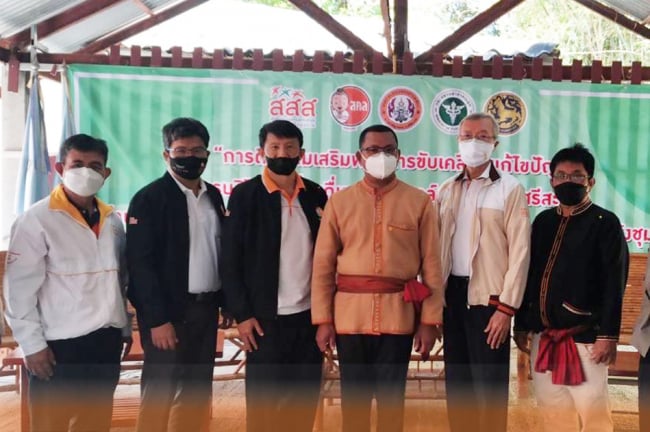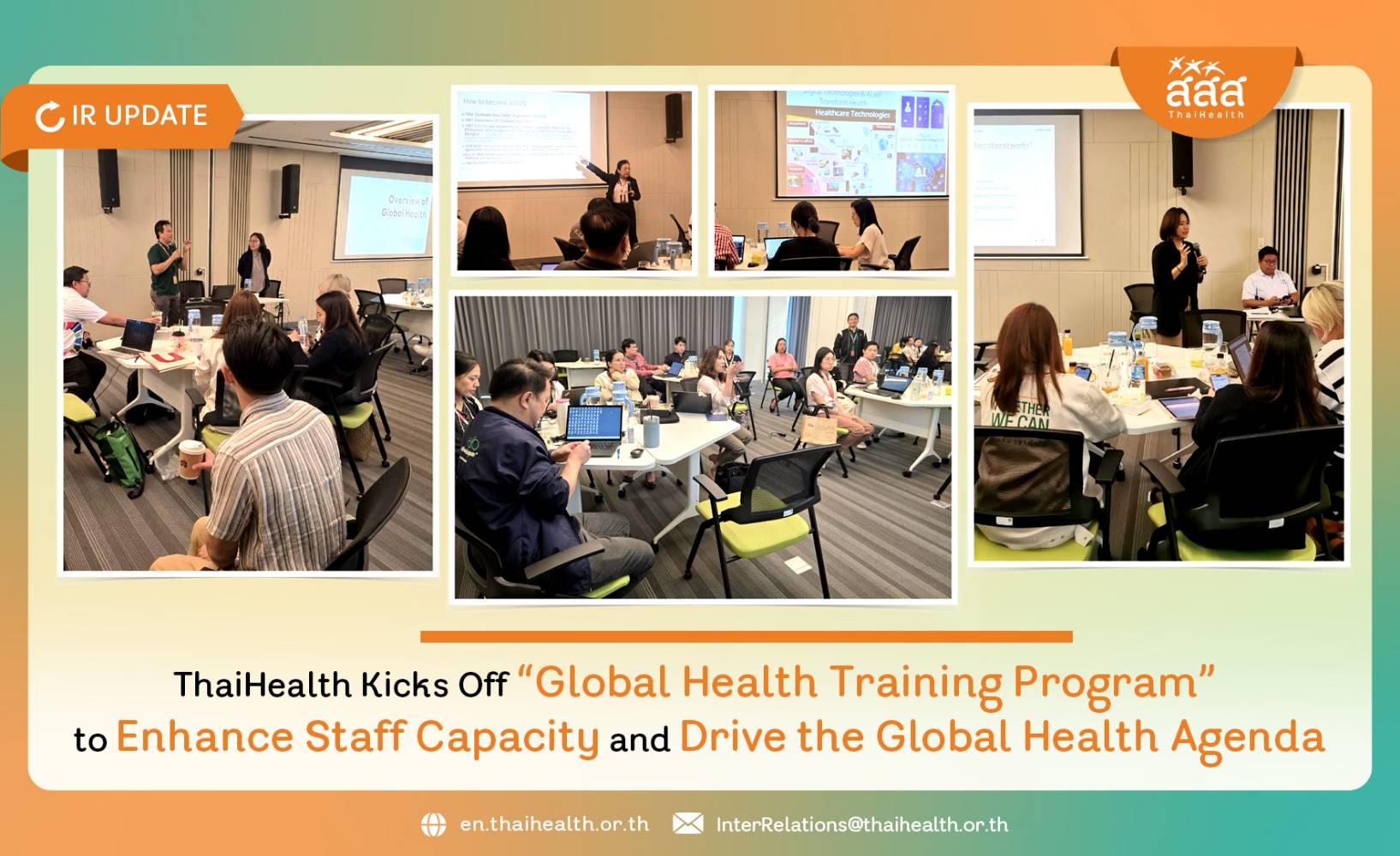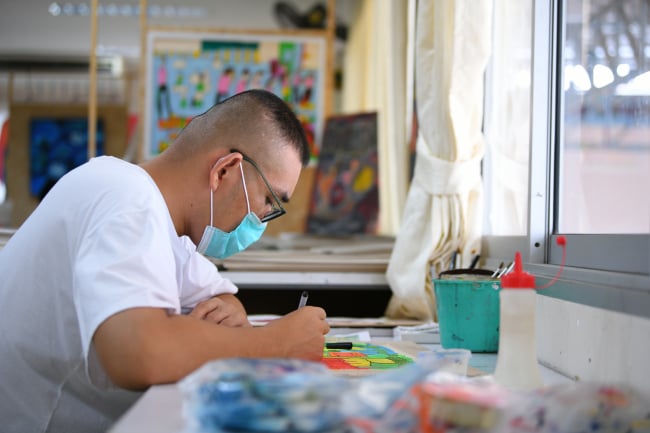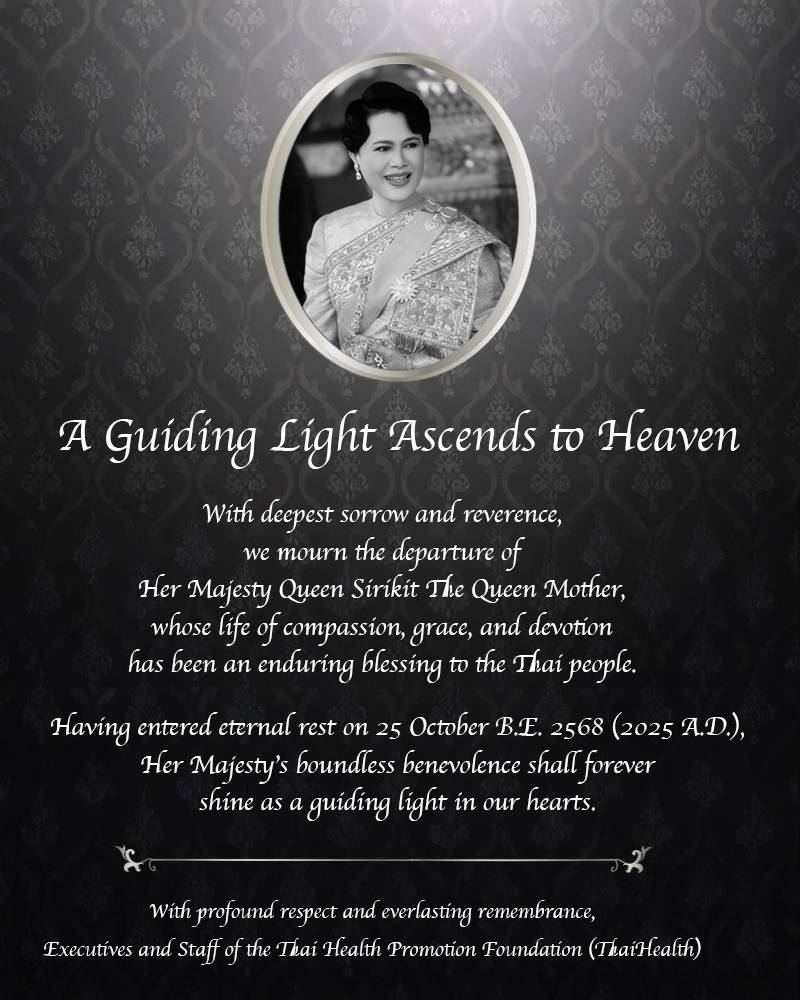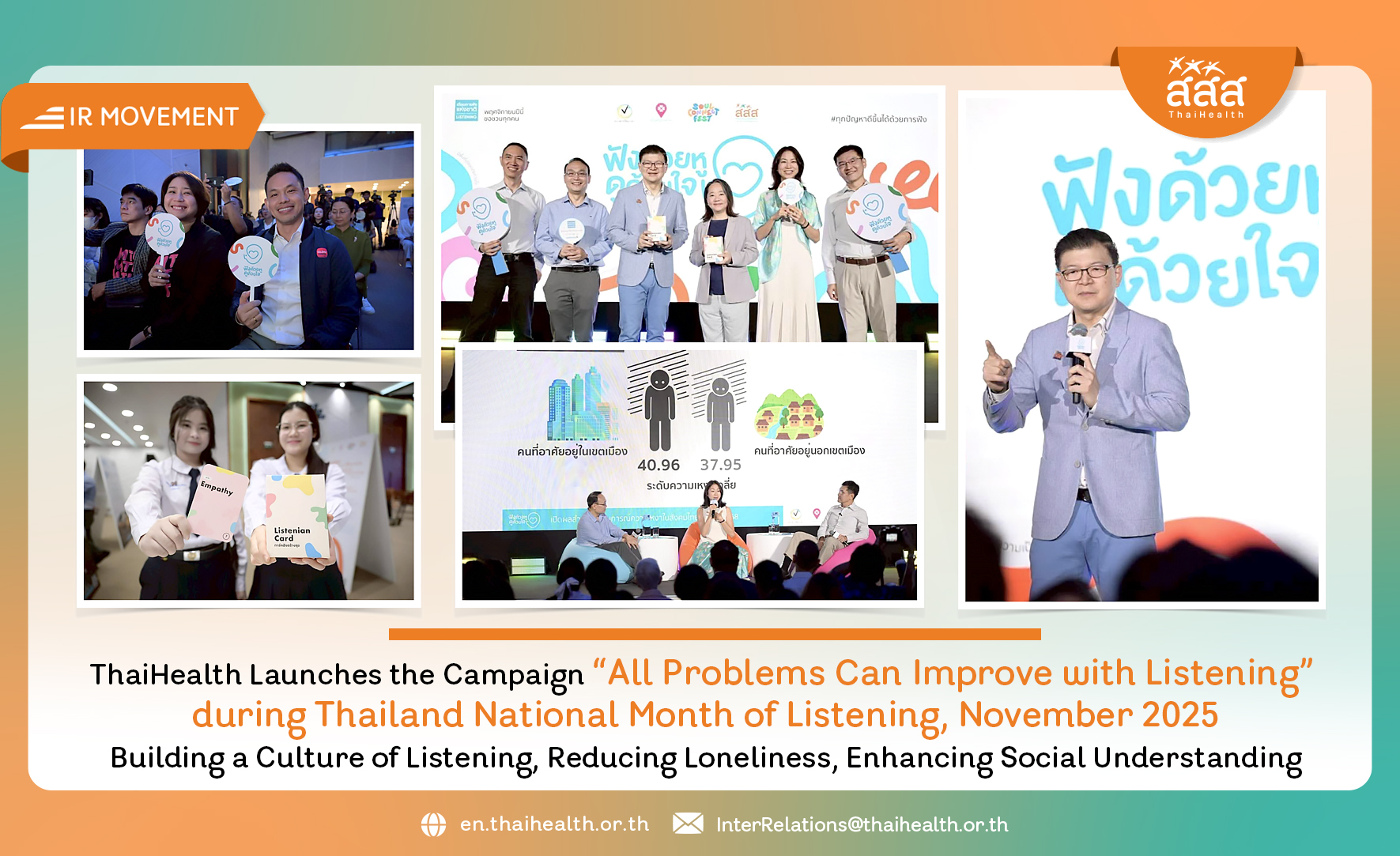
ThaiHealth Launches the Campaign “All Problems Can Improve with Listening” for the Thailand National Month of Listening
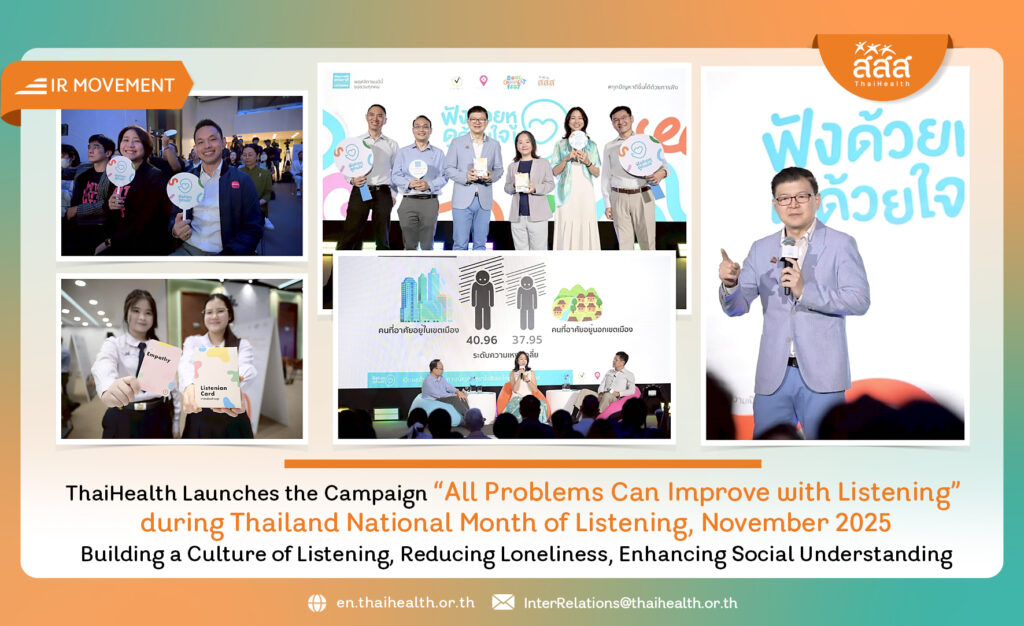
ThaiHealth Launches the Campaign “All Problems Can Improve with Listening” for the Thailand National Month of Listening — Building a Culture of Listening, Reducing Loneliness, Enhancing Social Understanding
The Thai Health Promotion Foundation (ThaiHealth), in collaboration with JitArsaBank and the network of spiritual well-being partners, held a press conference to launch the campaign “All Problems Can Improve with Listening,” on the occasion of the Thailand National Month of Listening this coming November 2025. Now entering its second year, the initiative aims to encourage people in Thailand to learn how to “listen with their ears and see with their hearts,” reduce loneliness, and promote mutual understanding in society.
Dr. Pongthep Wongwatcharapaiboon, ThaiHealth CEO, said that ThaiHealth and partners designated every November as the “National Month of Listening.” The campaign first started in 2024, aligning with international efforts that promote a culture of listening—such as World Kindness Day, the International Day for Tolerance, and the U.S. National Day of Listening. The goal is to spark awareness in society about the importance of listening and to build a culture of listening together.
In the Thai context, society is facing issues of relationship gaps, intergenerational divides, and conflicts of differing opinions, along with significant loneliness and isolation. Research shows that one day of loneliness or isolation can affect physical health the same way as smoking 15 cigarettes or drinking six alcoholic drinks a day.
Through last year’s actions, ThaiHealth enabled more than 91 listening spaces across the country. Over 2,298 people received services from volunteer listeners, and more than 1.7 million people accessed learning media about listening skills.
In 2025, ThaiHealth continues this concept under the campaign “All Problems Can Improve with Listening.” In collaboration with JitArsaBank and Chulalongkorn University, the first national survey on “Loneliness in Thai Society” was conducted among people aged 18–75, discovering that over 83% of Thai people feel lonely—especially those who live alone, live in urban areas, or have health issues. Notably, 1 in 5 Thai people believe that AI can provide better counselling than close persons because “it doesn’t judge” and “understands feelings” better. This data reflects the need for “empathetic human listening” in an era when technology plays a major role in daily life.
“Loneliness doesn’t just affect the mind—it leads to mental-health problems like depression, anxiety, and accumulated stress. ThaiHealth therefore promotes learning listening skills for self-management of loneliness, and encourages every organization to build listening spaces to connect relationships in society and move toward a caring, well-being society,” Dr. Pongthep said.
Dr. Sorrayut Ratanapojnard, Co-Director of JitArsaBank, said that throughout November 2025 there will be listening-skill building activities to cope with loneliness and access intellectual/spiritual wellness. Listening is a simple starting point that helps people know themselves, understand others, and move toward caregiving at various levels—whether counselling, mentoring, or being a listening friend. The activities are two-fold: 1) an e-Learning test/game “Listenian Game” and e-book “Listening to Build Happiness,” together with shared listening experience; 2) JitArsaBank and ThaiHealth developed the “Listenian Card” to create listening spaces in organizations—public, private, and community—with the goal of at least 100 organizations participating nationwide.
Elevating Mental-Health Promotion on the International Stage
ThaiHealth’s commitment to mental-health promotion has expanded internationally. At the Annual Meeting of the International Health Promotion Foundations (INHPF) 2025 in Singapore in September, under the theme “Inspiring Healthier Living: Challenging Conventions with Bold Solutions,” youth mental health was shared by ThaiHealth. This focused on the role of social marketing and digital platforms in youth mental well-being, given the growing global challenge driven by academic stress, changing societies, family pressures, digital media influence, and the accumulating impact of the COVID-19 crisis.
The campaign “All Problems Can Improve with Listening” during the National Month of Listening demonstrates that the Thai concept of “listening to understand” is not only domestic but aligned with global mental-health promotion trends. It builds a culture of understanding and connectivity through social and digital tools to restore citizens’ mental wellness.
Integrating the Concept of “Listening” with Digital Innovation for Mental Wellness
During the INHPF Annual Meeting 2025, ThaiHealth also emphasized that digital tools are not meant to replace mental-health professionals, but to extend care in a way that is more accessible, safe, and continuous. The six core values are:
- Enhancing mental health literacy – a channel for knowledge about mental health
- Connecting access to services – bridging gaps between users and providers
- Enabling self-monitoring – allowing users to record and track mood or stress in real time
- Reducing stigma – providing safe, private spaces for help
- Supporting treatment – delivering tools for ongoing care outside hospitals
- Empowering self-management – enabling youth to proactively manage their mental health
The National Month of Listening applies these approaches nationwide through tools like the Listenian Game, Listenian Card, and the e-Learning “Listening to Build Happiness,” which are digital-health tools that help people practice listening, understand others, and explore their own emotions in a structured way. They represent a social innovation that bridges Thailand’s mental-health promotion policy with global directions. It reinforces the notion that promoting mental health doesn’t have to start from treatment—it can begin with deep listening and creating spaces where everyone feels, “My voice matters.”


